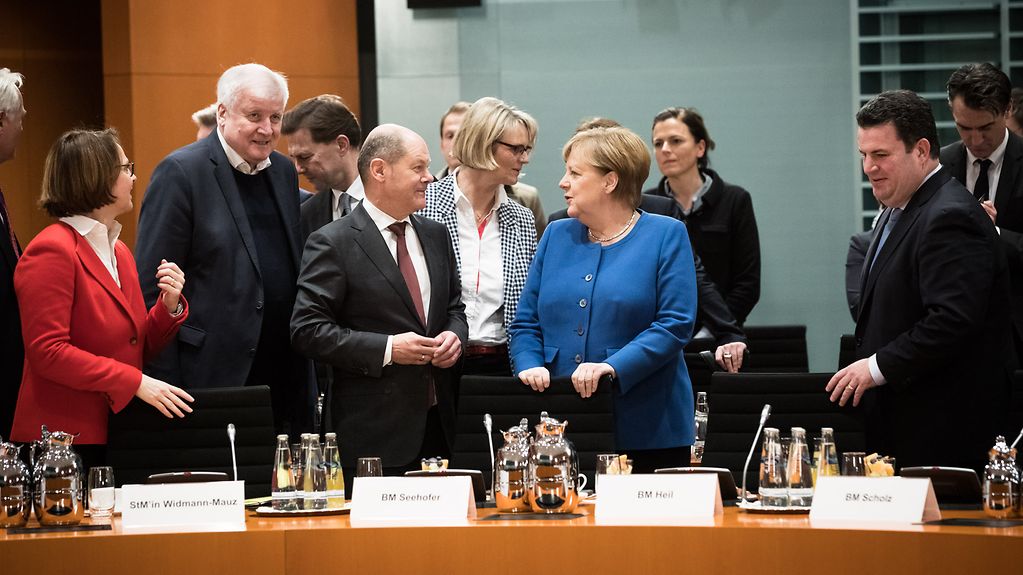Top-level meeting at the Federal Chancellery
Attractive working conditions and an attractive social environment are to bring more specialists and skilled workers to Germany. The Federal Government has agreed this with corporate associations and trade unions at a meeting at the Federal Chancellery.
2 min reading time

On 1 March 2020 the Skilled Immigration Act is to enter into force.
Photo: Bundesregierung/Steins
After the meeting, Federal Chancellor Angela Merkel stressed that with regard to the major global competition for qualified skilled workers, it is important for Germany to come across “as an interested country that is open to the world”. For this reason, she said, they also talked about issues of integration and working conditions.
Cooperation between industry and politics
By signing a declaration of intent, the participants agreed to speed up the visa and recognition process, among other things. In addition, companies are to provide skilled workers and their families who come to Germany with more assistance in looking for accommodation and dealing with official procedures.
But the domestic workforce is to be used to its full potential, too. “We have a large number of measures and laws that give everyone in Germany the chance to be really gainfully employed, too. With regard to women's employment, we are improving opportunities for balancing family and work life,” announced the Federal Chancellor. This requires close cooperation between industry, trade unions, the Federal Government and federal state governments (Länder), she said.
On 1 March 2020 the Skilled Immigration Act (Fachkräfteeinwanderungsgesetz) is to enter into force. The new law forms the legal basis for the immigration of skilled workers to Germany. It is designed to make it easier for academically and professionally qualified skilled workers from non-EU states to move to Germany. In this way, the Federal Government aims to meet the growing need for qualified staff that cannot be covered by domestic and European workers.
Finding joint solutions
Before the meeting at the Federal Chancellery, Federal Minister for Economic Affairs and Energy Peter Altmaier had also explained that “meeting the requirements for skilled workers is one of the greatest challenges for our industrial location”. According to the latest survey by the Association of German Chambers of Industry and Commerce (DIHK), more than 50 per cent of businesses describe the lack of skilled staff as their biggest business risk.
Avoiding unnecessary red tape
Federal Minister of Labour and Social Affairs Hubertus Heil stressed that: “We want to ensure that skilled workers can quickly find their way into businesses that need them. We want to avoid unnecessary red tape, make it easier to recognise qualifications, better equip visa agencies and digitalise the application process.”
Alongside the Skilled Immigration Act, the Federal Government has worked intensively on other measures designed to support the immigration of skilled workers. Comprehensive information for companies and skilled workers on issues relating to the immigration of skilled workers is available on the umbrella portal "Make it in Germany". The Deutsche Fachagentur für Gesundheits- und Pflegeberufe (German specialist agency for healthcare and nursing professions) assists care facilities with the administrative procedures involved in hiring trained foreign care workers.